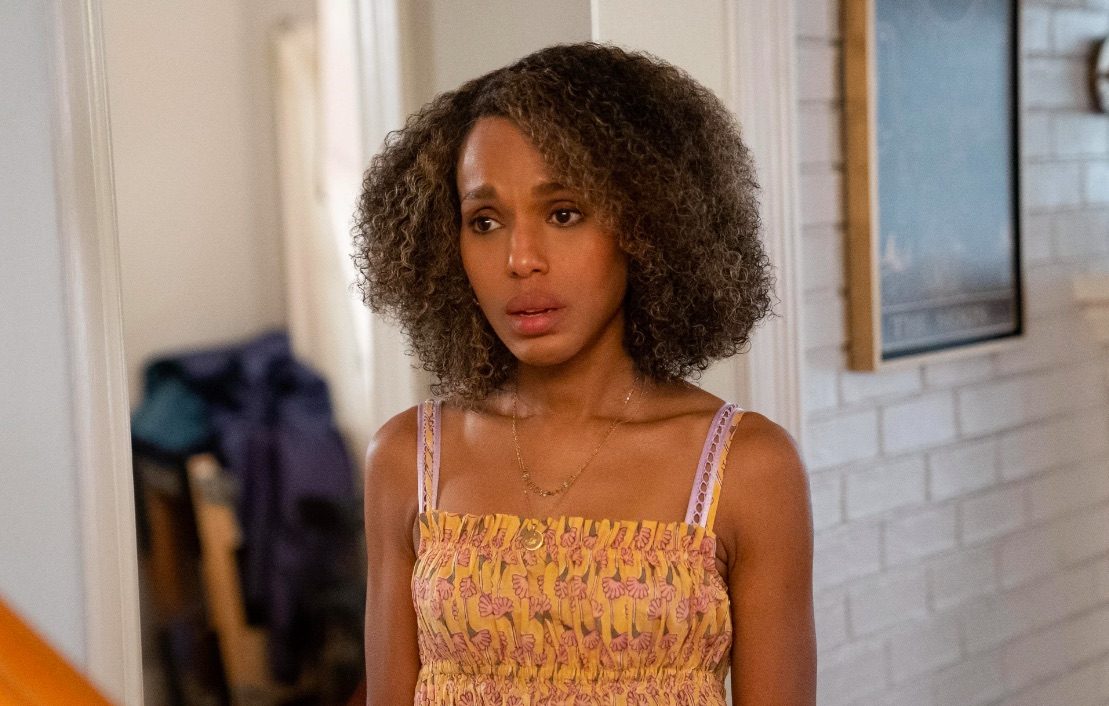Hulu’s ‘UnPrisoned’ follows the complicated relationship between Paige and her father, Edwin. His criminal past had an adverse effect on Paige, who had a very turbulent childhood. She lacked the stability of a proper home, and growing up without her father led to issues affecting her adult relationships. When she thinks she has started figuring things out, Edwin returns to her life. Released from prison after over a decade-and-a-half, he brings back the emotions that Paige had surpassed all this while. Her struggle to make peace with her father’s past and her own issues leads her on a bumpy journey. The realistic nature of her struggles makes her relatable to the audience. It might make you wonder whether she is based on a real person. Let’s find out.
Paige Alexander is Based on the Writer of the Show
Paige Alexander in ‘UnPrisoned’ is based on the writer and creator of the show, Tracy McMillan. Paige’s backstory in the show is almost entirely based on Tracy’s background. While talking with Hello Sunshine, McMillan revealed that her mother was a sex worker and her father was a drug dealer and a pimp. “My mother was 20 when she had me. She didn’t want a baby. She gave me up when I was three months old. I went into foster care until I was 18 months old. Then I came out, and my dad was my primary attachment figure until he got a big prison sentence when I was three,” she said.
Following this, McMillan was sent to foster care, where she moved around from one home to another. After going through “like two dozen homes,” she ended up living with the family of a Lutheran minister. In the show, Paige lives with a Christian family and considers them her real parents, as the best time of her childhood was spent in their household. Soon after, McMillan’s father returned from prison and took her back. Soon after, he got into a tiff with the law again and ended up getting nineteen years in jail. When he left, McMillan spent the next decade of her life with his girlfriend, Pauline.
Because she never got to spend enough time with her father, McMillan never had a normal relationship with him. Years later, with the prospect of him coming out of prison becoming a reality, she wondered what it would be like. “I had never really been in a relationship with my dad where we would go to lunch, be in the world, or have anything to do with each other outside of a prison visiting room. So I started to imagine what it would be like to establish a relationship with my dad again in the world and have him meet my son. And you know what’s that going to be like? How am I going to do that? It gave me a lot of anxiety,” she said.
Her anxieties, insecurities, and conceptions about her father found their way into Paige when McMillan started writing the story. She made Paige a relationship expert, like herself. “I wanted to convey what it’s like to sit next to me at a dinner party,” she said, explaining the reasoning behind Paige’s vocabulary and her continuous dissection of the psychology of people around her while trying to understand her own issues. This is also where the idea of Little Paige came into play.
In the TV show, Little Paige comes out whenever adult Paige needs to rant. The younger versions of people around her also show up when she tries to understand the things that impacted them so much in their childhood that they still carry their effects into adulthood. McMillan related it to what she learned in therapy. She discovered that she needed to acknowledge the relationship with her inner child to resolve her issues in adulthood. “There’s like a pure self that is untouched by anything that’s happened, foster care, like any abuse, says, like all the things, you know, the losses. She’s untouched by that. She’s like, here’s the truth,” she explained.
McMillan tapped into the part that “we all have that part of ourselves that is so true to us, and if you want to get free and know what’s right for you and make a good decision.” Considering this, it is evident that McMillan looked deep into herself to create Paige. She imbued the fictional character with the challenges and struggles that defined her life, giving the audience something real and relatable.
Read More: Tracy McMillan: Where is UnPrisoned Writer Today?

